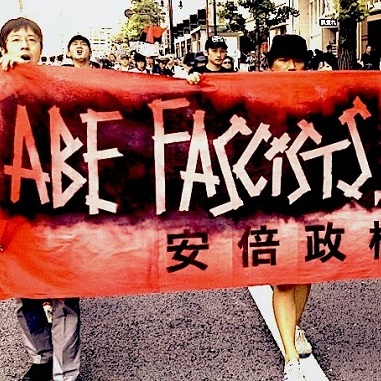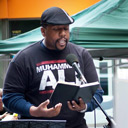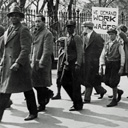
Hurling the Little Streets Against the Great: Marshall Berman’s Perennial Modernism
For Marshall Berman, the street was not just the site where modernism was enacted; it was modernism incarnate.


For Marshall Berman, the street was not just the site where modernism was enacted; it was modernism incarnate.

It is time to ask how we can end our pathological dependence on the ineffective and swollen agency.

There were large demonstrations this week in Tokyo in response to the government’s move to reinterpret Article Nine of Japan’s Constitution, in which “the Japanese people forever renounce war as a sovereign right of the nation.” The prominent support Shinzō Abe’s forceful tactics enjoy among American officials raises questions about who he sees as his key political audience.

Hong Kongers have never been quite comfortable discussing the 300,000 migrant domestic workers, most of whom are female, to which the city currently plays host. Complicating the discussion further is the media’s tendency to steer such discussions from issues of fair wages and workplace safety toward the still more vexing question of citizenship.

With Johns Hopkins ranking as Baltimore’s largest private employer, the hospital workers’ struggle holds tremendous implications for the future of the Baltimore economy—and countless other struggling postindustrial cities.

For far too long, New York City development projects have heavily subsidized corporations and big banks at the expense of small businesses and low-wage workers. Will Bill de Blasio do anything to change that?

The schools of New York are now more segregated than at any point in the state’s history, and are the most segregated schools in the nation. New York City math teacher José Luis Vilson’s This Is Not A Test is a powerful account of how today’s resegregation holds back students of color—and how black and Latino teachers can fight back.

Rock-and-roll fans tend to see the rock culture of the 1950s and ‘60s as both a reinvention of American popular music and a force for self-expression and liberal culture. Two new books show what this account leaves out: rock and roll’s frontal assault on American racism.

We have developed the habit of thinking about the Declaration of Independence mainly as an event, an episode in the dramatic unfolding of the American Revolution. But it makes a cogent philosophical case for political equality, a case that democratic citizens desperately need to understand.

Twenty-four hours a day, across more than sixty free product “platforms,” Google is storing, indexing, and cross-referencing information about the activities of a billion people. What are the 30,000 prodigies at Google, Inc. doing with all that data?

In their responses to Michael Walzer’s “A Foreign Policy for the Left,” Eric Alterman and Jeff Faux make the case for the “default position”: minimal engagement, at least until we get democracy right here at home. Michael Walzer responds.

Ninety-five years ago today, Beijing students gathered in front of Tiananmen, the Gate of Heavenly Peace, and launched a mass movement against corruption and foreign bullying. Seventy years later, in 1989, student protesters would gather at the same spot to claim the May Fourth mantle—only to be brutally repressed.

Concluding our nine-part series on inequality, a crash course in the last 100 years of U.S. fiscal and monetary policy, from the creation of the Fed to the Phillips curve to the modern-day bloodletting known as austerity.

The new media gurus claim that everybody can remix and peer produce their way to a networked, cultural cornucopia. But thankfully, as sugar-coated paeans to the power of tech have proliferated, so have sharp, critical accounts. Astra Taylor’s new book, The People’s Platform, rises to the top of this list.

At a cost of several hundred millions of euros, the capital of Macedonia is undergoing a makeover that includes one of the largest statues in Europe, a new archaeological museum, and several works of public art, all financed by the government in an effort to paint their poverty-stricken state as the rightful inheritor of a distant grandeur. Critics have wondered whether the money could not be better spent in a country that, if it were to join the EU, would be the poorest member.